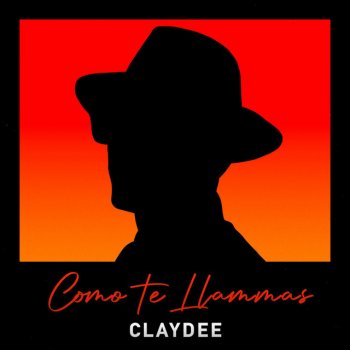Como Te Llamas - Claydeetraduction en allemand
(Toma,
toma)
(Komm,
komm)
(Toma,
toma)
(Komm,
komm)
(Toma,
toma)
(Komm,
komm)
(Toma,
toma)
(Komm,
komm)
¿Cómo
te
llamas?
(toma,
toma)
Wie
heißt
du?
(komm,
komm)
Que
estás
en
mi
cama
(toma,
toma)
Dass
du
in
meinem
Bett
bist
(komm,
komm)
¿Por
qué
tú
no
te
quedas?
(toma,
toma)
Warum
bleibst
du
nicht?
(komm,
komm)
Este
fin
de
semana
(toma,
toma)
Dieses
Wochenende
(komm,
komm)
¿Cómo
te
llamas?
(toma,
toma)
Wie
heißt
du?
(komm,
komm)
Que
estás
en
mi
cama
(toma,
toma)
Dass
du
in
meinem
Bett
bist
(komm,
komm)
¿Por
qué
tú
no
te
quedas?
(toma,
toma)
Warum
bleibst
du
nicht?
(komm,
komm)
Este
fin
de
semana-ana
Dieses
Wochenende-ende
Ella
se
quedó
Sie
ist
geblieben
Se
tomó
un
shot
Sie
hat
einen
Shot
getrunken
Y
me
dice
que
del
novio
ya
se
escapó
pa
Punta
Cana
Und
sie
sagt
mir,
dass
sie
von
ihrem
Freund
schon
nach
Punta
Cana
abgehauen
ist
Dominicana
Dominikanerin
Ella
se
quedó-do
Sie
ist
geblieben-ben
Conmigo
simplemente
se
quedó-do
Bei
mir
ist
sie
einfach
geblieben-ben
Aquí
en
mi
cama
Hier
in
meinem
Bett
Aquí
no
hay
drama
Hier
gibt's
kein
Drama
Lucía,
Sofía,
Mariana
(Mariana)
Lucía,
Sofía,
Mariana
(Mariana)
Cristina,
María
o
Juana
Cristina,
María
oder
Juana
Se
quedan
el
fin
de
semana
Sie
bleiben
das
Wochenende
Tomando
una
piña
colada
Trinken
eine
Piña
Colada
Así
que
(toma,
toma)
Also
(komm,
komm)
¿Cómo
te
llamas?
(toma,
toma)
Wie
heißt
du?
(komm,
komm)
Que
estás
en
mi
cama
(toma,
toma)
Dass
du
in
meinem
Bett
bist
(komm,
komm)
¿Por
qué
tú
no
te
quedas?
(toma,
toma)
Warum
bleibst
du
nicht?
(komm,
komm)
Este
fin
de
semana
(toma,
toma)
Dieses
Wochenende
(komm,
komm)
¿Cómo
te
llamas?
(toma,
toma)
Wie
heißt
du?
(komm,
komm)
Que
estás
en
mi
cama
(toma,
toma)
Dass
du
in
meinem
Bett
bist
(komm,
komm)
¿Por
qué
tú
no
te
quedas?
(toma,
toma)
Warum
bleibst
du
nicht?
(komm,
komm)
Este
fin
de
semana-ana
Dieses
Wochenende-ende
Ella
le
gusta
así
porque
soy
su
amigo
Ihr
gefällt
es
so,
weil
ich
ihr
Freund
bin
No
le
importa
nada,
se
queda
conmigo
Es
ist
ihr
alles
egal,
sie
bleibt
bei
mir
Hago
lo
que
diga,
sé
lo
que
digo
Ich
tu,
was
sie
sagt,
ich
weiß,
was
ich
sage
Dice
que
yo
pare,
pero
siempre
sigo
Sie
sagt,
ich
soll
aufhören,
aber
ich
mach
immer
weiter
Ella
se
quedó
Sie
ist
geblieben
Se
tomó
un
shot
(one
shot)
Sie
hat
einen
Shot
getrunken
(ein
Shot)
Y
me
dice
que
del
novio
ya
se
escapó
pa
Punta
Cana
Und
sie
sagt
mir,
dass
sie
von
ihrem
Freund
schon
nach
Punta
Cana
abgehauen
ist
Dominicana
Dominikanerin
Así
que
toma,
toma,
toma
Also
komm,
komm,
komm
Toma,
toma,
toma,
de
Punta
Cana
Komm,
komm,
komm,
aus
Punta
Cana
Dominicana
Dominikanerin
(Toma,
toma,
toma)
(Komm,
komm,
komm)
¿Cómo
te
llamas?
(toma,
toma)
Wie
heißt
du?
(komm,
komm)
Que
estás
en
mi
cama
(toma,
toma)
Dass
du
in
meinem
Bett
bist
(komm,
komm)
¿Por
qué
tú
no
te
quedas?
(toma,
toma)
Warum
bleibst
du
nicht?
(komm,
komm)
Este
fin
de
semana
(toma,
toma)
Dieses
Wochenende
(komm,
komm)
¿Cómo
te
llamas?
(toma,
toma)
Wie
heißt
du?
(komm,
komm)
Que
estás
en
mi
cama
(toma,
toma)
Dass
du
in
meinem
Bett
bist
(komm,
komm)
¿Por
qué
tú
no
te
quedas?
(toma,
toma)
Warum
bleibst
du
nicht?
(komm,
komm)
Este
fin
de
semana-ana
Dieses
Wochenende-ende
(Dominicana)
(Dominikanerin)
(De
Punta
Cana)
oye,
yo
soy
Claydee
(Aus
Punta
Cana)
hey,
ich
bin
Claydee
(De
Punta
Cana)
¿y
tú?
(Aus
Punta
Cana)
und
du?
(Fin
de
semana)
¿vamos
a
tu
casa
o
a
mi
casa?
(Wochenende)
gehen
wir
zu
dir
oder
zu
mir?
Évaluez la traduction
Attention! N'hésitez pas à laisser des commentaires.
